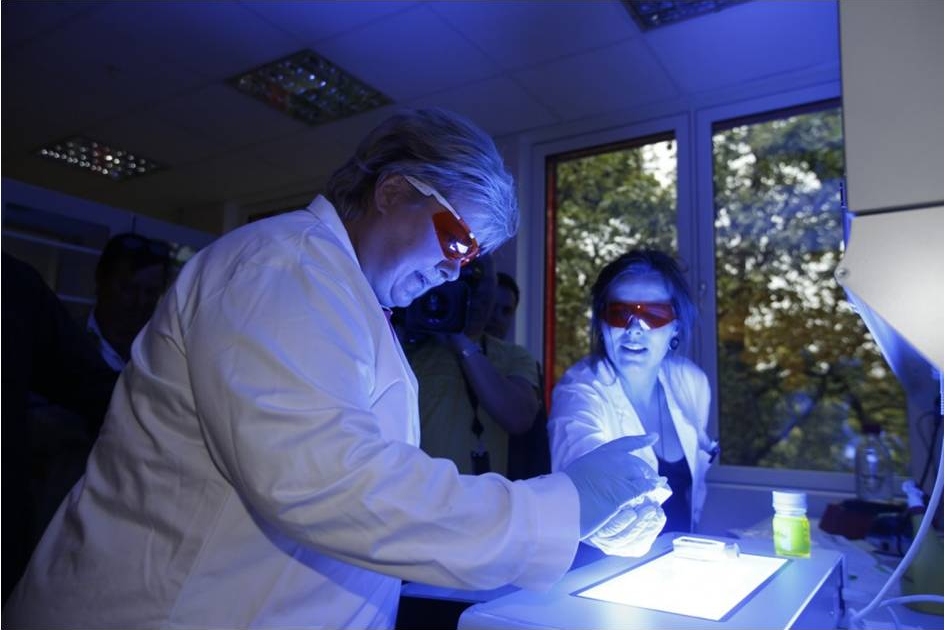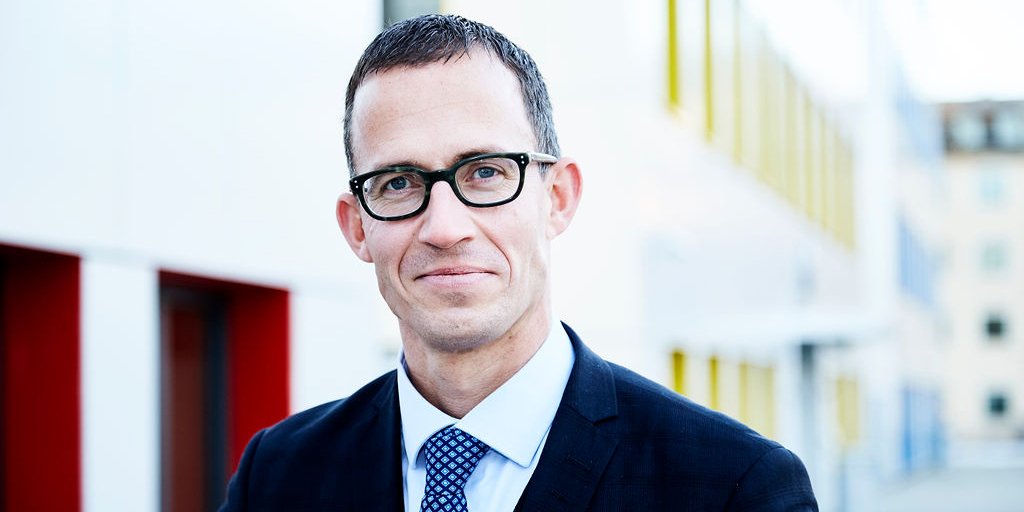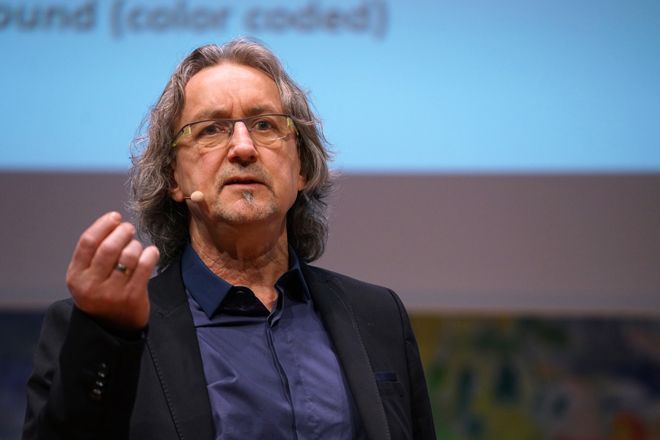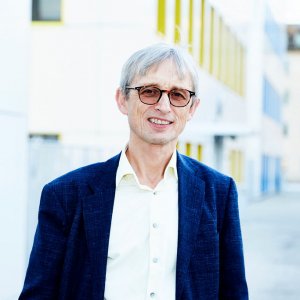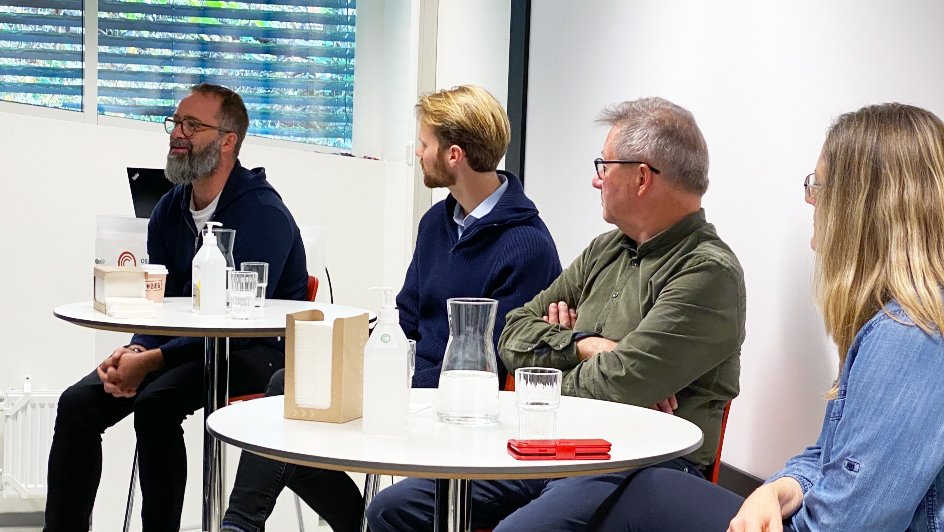
The second-year class of the Researcher Programme at Ullern Upper Secondary School has been assigned new mentors for the school year 2020/2021. The first meeting with the mentors was about how the road to becoming a researcher or doctor or other occupation can be diverse and take many different routes.
This article was originally published in Norwegian on our School Collaboration website.
The students in the second year of the Researcher Programme at Ullern Upper Secondary School are used to having mentors guiding them during the school year, and inspiring and challenging them. This year, all the mentors, except for Øyvind Kongstun Arnesen, are new to the students. These are the mentors:
- Henrik Sveinsson, a physics researcher at the University of Oslo,
- Steven Ray Wilson, a chemist and professor at the University of Oslo,
- Janne Nestvold, laboratory manager at Oslo Cancer Cluster Incubator,
- Severin Langberg, a PhD student in machine learning and cancer at the Norwegian Cancer Registry (absent from this meeting).
The meeting included introductions of all the mentors and a Q&A session.
Henrik Sveinsson
“I was fascinated by the financial crisis in 2008 and how they used math to cover up the fraud in big banks like Lehman Brothers. I applied to Norway’s Business School in Bergen to study economy, but I learnt quickly that I should have gone to the University of Oslo to study social economics, so I did that instead. Coincidentally, I took up a physics course and became very interested in that, and ended up as a physicist.”
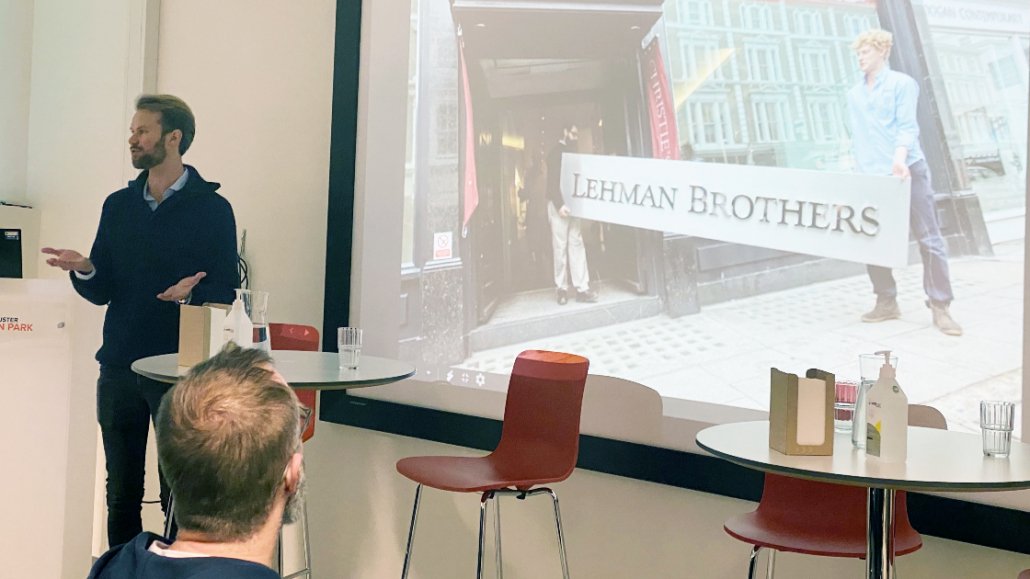
Henrik Sveinsson became interested in the financial crisis of 2008 and how math was used to cover up what the big banks were doing. Photo: Elisabeth Kirkeng Andersen.
Steven Ray Wilson
Steven studied psychology first, but then switched to chemistry, and is today professor at the Institute for Chemistry at the University of Oslo. He and his students work with pharmaceuticals, drugs and doping, and use chemistry to measure concentration levels in the body.
“Chemistry was the core of everything I thought was cool,” he said to the students of the Researcher Programme about why he chose to study chemistry.
Steven is also a musician, has worked professionally as a musician for periods and even won the Norwegian music award “Spellemanspris”. He encourages the students to have a passion besides their jobs. In one of the research projects he leads, they are cultivating mini-organs to faster test the efficacy and side-effects of drugs, as an alternative to animal testing.

Steven Ray Wilson (to the left) tells the students about his experiences from combining careers in research and music. Photo: Elisabeth Kirkeng Andersen
Øyvind Kongstun Arnesen
Øyvind is a doctor by education, has worked as a surgeon and led the cancer vaccine company Ultimovacs. He tells the students that the road to get there was not always straightforward:
“I dropped out of upper secondary school and went for a long time on unemployment activities as a youth. One of the jobs was to clean test tubes in the laboratory at the Dentist School. After a while, I got more fun assignments and even participated in research into fluor in drinking water, among other things. Then, I finished upper secondary school by picking up some courses and worked at Dikemark as an unskilled worker. That was when I decided to study medicine and retook some subjects to be accepted to the medical programme.
“After that, I worked a lot with developing a vaccine against a contagious form of meningitis at the Norwegian Institute for Public Health. I am very proud to have been a part of that because this vaccine now saves hundreds of thousands of people’s lives.”
Janne Nestvold
Janne manages the research laboratory at Oslo Cancer Cluster Incubator and helps biotech start-ups. She has a PhD in immunology and a background as a cancer researcher at the Institute for Cancer Research, and several other places. Before her career in research, she studied social anthropology and worked with drug addicts in Oslo. That was when she became interested in the combination of drugs and psychology and began to study biology.
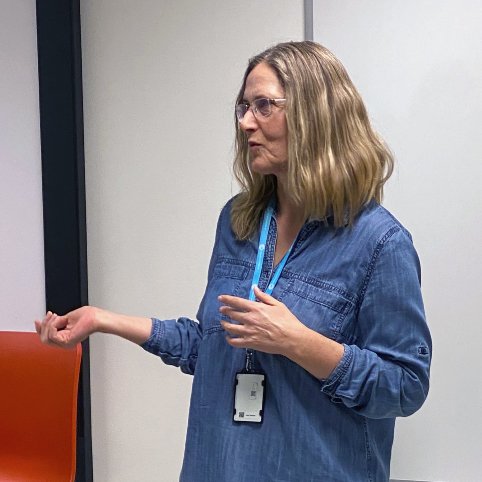
Janne Nestvold today manages the laboratory in Oslo Cancer Cluster Incubator and has a background in both social anthropology and cancer research. Photo: Elisabeth Kirkeng Andersen.
Questions & Answers
Steven, what kind of music do you like – besides your own band?
“To play in a band and be creative is in many ways like being a researcher. Miles Davies is my biggest musical hero. He was extremely innovative and a tough guy unafraid to make any mistakes. When the band played something wrong, the point was to use the mistake to make something completely new in the music.
“Making mistakes is more about how you handle them than anything else. It is about being able to use the imperfect creatively, which I always remember in life, both generally and in research.”
Øyvind, how was everyday life when you worked as a surgeon?
“When I worked shifts as a surgeon, they would go on for about 27 hours. We would start at 7:00 am in the morning with a meeting, where we would learn something new. Then, we reviewed all the patients scheduled for surgery that day and assigned the tasks and surgeries among ourselves. The shift team got the easiest surgeries, so we could help the surgeons in the emergency room at Oslo University Hospital when seriously injured patients were admitted. If you were lucky, you got to sleep a little during the night.
“Then, it was the next morning. We had another meeting to report what had happened during the shift, and then we were supposed to visit the patients. I refused to do that, because it is not acceptable for the patients that an exhausted, tired doctor comes in to talk with them.”
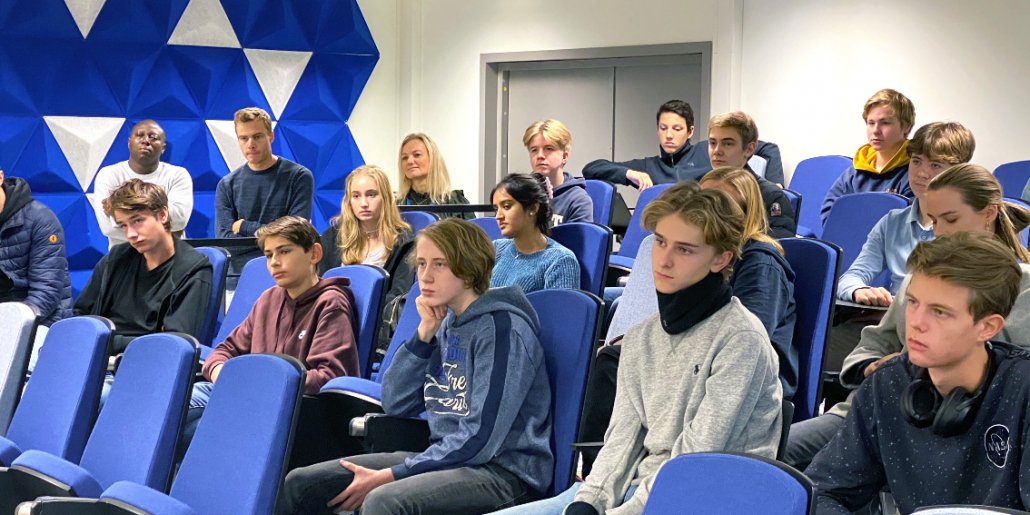
The students listened intently to all the advice from their new mentors: Steven, Henrik, Øyvind and Janne. Photo: Elisabeth Kirkeng Andersen.
Janne, how do you get a reliable result when you perform research?
“Preparations make up half the work. I worked a lot with animal testing, which means you must think through everything before the experiment. For example, the accurate dosage for sick animals and healthy animals. It is very expensive to do these experiments, so it is important that everything is set up correctly. Afterwards, you analyse the results in a research group, and then you publish the results. If others cite your research, it spreads in the environment, and has an impact on other research in the same field.”
Question for everyone: why do you want to be our mentors?
Janne: “I want you to know that a career in science is an exciting path to take. Every day you are in the middle of everything here at Oslo Cancer Cluster Innovation Park. There are a lot of opportunities here with the Incubator and the Institute for Cancer Research. I want to show you what some of those opportunities are.”
Steven: “It is fun to follow your journeys. As I told you earlier, I have been a mentor for over 40 students so far, and it is like being in a time machine. In a couple of years, you will do academic and professional things that are amazing, so it is fun to participate and observe and help a little in your lives.”
Henrik: “I am not completely sure, but I accepted the offer immediately. It feels important, when I think it through now, to give you an insight into physics and to contribute to the choices you will make.”
Øyvind: “Some of the most fun things I do are to teach, and I can’t decline when I am the Chairman of Oslo Cancer Cluster (jokingly). Honestly, it is fun for me to contribute as your mentor, so that is the reason.”
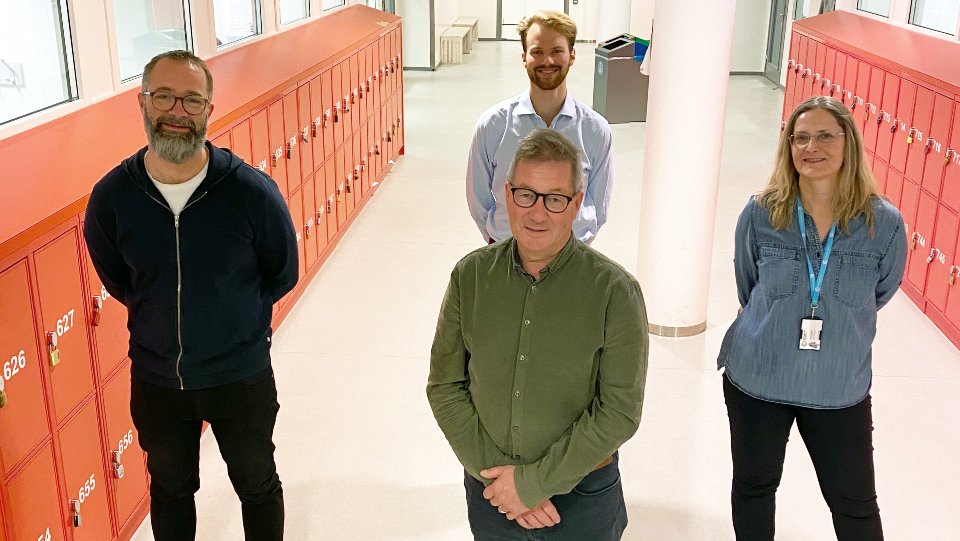
The mentors gathered with one-metre distance apart. From left to right: Steven Ray Wilson, Henrik Sveinsson (behind), Øyvind Kongstun Arnesen (in front) and Janne Nestvold. Photo: Elisabeth Kirkeng Andersen.

